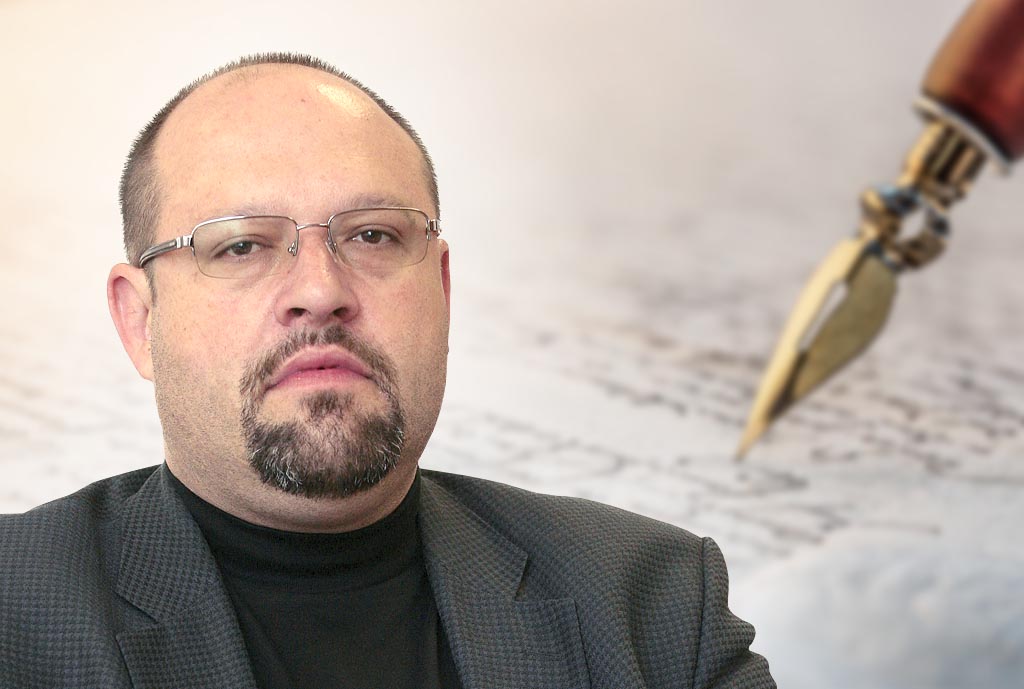By: Dr Matevž Tomšič
The Sunday programme Intervju on Television Slovenia is one of the few shows on this taxpayer-funded media institution that still maintains internal plurality, meaning that the hosts, who rotate week by week, invite guests with different political and ideological perspectives. After the so-called depoliticization, which brought about a ruthless purge of those suspected of collaborating with the previous leadership and/or having political views deemed insufficiently orthodox, shows where a group of like-minded leftists discuss various social issues are becoming more dominant. This is leading to increasing uniformity, especially when it comes to reporting on current political matters.
However, there are exceptions, such as the aforementioned show. This is especially true when the guest is interviewed by top expert on recent Slovenian history, Jože Možina. He hosts people whose thoughts typically diverge significantly from the political-ideological orthodoxy of the institution. Yet, these interviews often provoke the ire of those who continue to believe in the myths produced by the propaganda of the former communist regime.
Recently, the guest on the show was historian Dr Milko Mikola, a leading researcher of communist violence in Slovenia. He offered a wealth of insightful reflections on Slovenia’s past and present, reflections that are particularly burdensome for those in power. The conversation was not limited to the crimes of communist revolutionaries during and after World War II, but also touched on today’s perception of those crimes. And the latter is far from encouraging. Let us remember that the government abolished the Day of Remembrance for the victims of communism. When asked why the current authorities hold such a dismissive attitude toward these victims, Mikola provided the following response: “Because these are the victims of those without whom the leftist coalition would not be in power.” It could not have been said better! If they were to condemn the communist crimes and, in general, the systematic violation of human rights and freedoms by the communist regime, they would undermine the legitimacy of their positions of power.
The left owes its dominant position in Slovenian society to the communist revolution, which killed some of its opponents, exiled others, deprived a third group of their freedom, and kept the entire population in fear. The decades of communist dictatorship were followed by a “soft transition,” which allowed the former nomenclature to retain many key positions in the most important areas of society. This then passed on privileges to its successors. In certain cases, these are blood relatives. A typical example is the current prime minister, a true child of the red elite, as his father was the director of a major energy company under the former regime. Some other key representatives of leftist politics and civil society also come from families that were at the top of the former nomenclature.
But more than biological continuity, it is about spiritual continuity. Through this, the ideological and value patterns characteristic of the former communist regime is preserved. A significant portion of the left has never truly condemned the anti-democratic nature of that regime. On the contrary. As Mikola points out, in this sense, we are even experiencing a regression, as we are ideologically returning to the 1970s. There is an increase in ideological rigidity, exclusivism, and intolerance, especially among those who love to proclaim themselves as open and tolerant. The bearers of these “progressive” ideas (which, of course, they are not) do not even recognise the legitimacy of their opponents’ ideological and political orientations, which is fundamentally opposed to democratic principles. Therefore, such an uncivilised attitude towards the victims of communist violence is no accident. It reflects their attitude toward those who, even today – according to the guardians of progressive orthodoxy – are “on the wrong side of history.”

